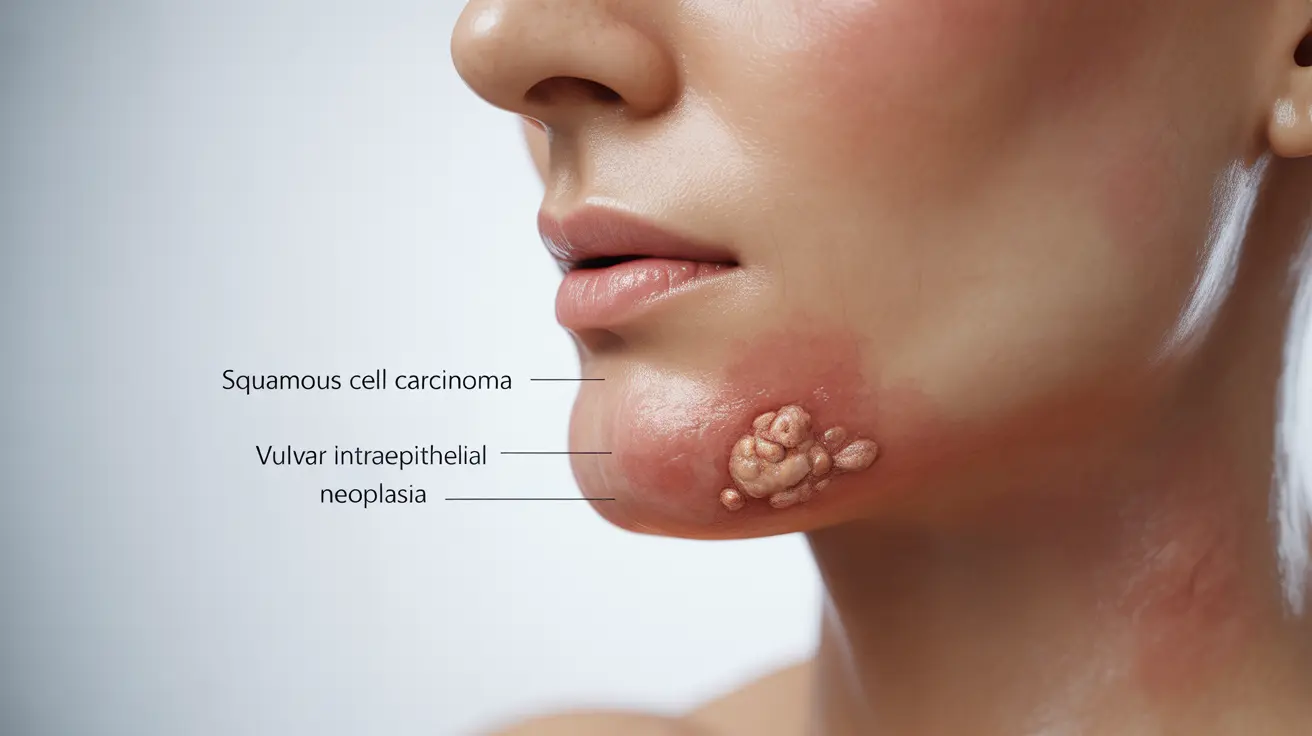Discovering unusual changes in your body can be concerning, especially when it comes to intimate areas. Many people wonder about the relationship between vulvar cancer and unusual odors, and it's important to understand both the symptoms and when to seek medical attention.
While various gynecological conditions can cause changes in vaginal odor, understanding the specific signs associated with vulvar cancer can help you make informed decisions about your health care. Let's explore the connection between vulvar cancer and unusual odors, along with other important symptoms to watch for.
Understanding Vulvar Cancer
Vulvar cancer is a relatively rare type of gynecologic cancer that develops in the external female genitalia. It most commonly affects the outer lips of the vagina (labia majora) but can occur in other parts of the vulva, including the inner lips (labia minora), clitoris, or vaginal opening.
Common Signs and Symptoms of Vulvar Cancer
While odor changes can be a symptom, vulvar cancer typically presents with several other notable signs:
- Persistent itching or burning sensation
- Visible changes in skin color or texture
- Lumps, warts, or sores that don't heal
- Bleeding or spotting not related to menstruation
- Pain or tenderness in the vulvar area
- Changes in the appearance of vulvar skin
The Relationship Between Odor and Vulvar Cancer
An unusual or unpleasant odor may occur with vulvar cancer, particularly in advanced stages. However, it's important to note that odor alone is rarely the first or only symptom. The smell typically results from:
- Tissue breakdown in advanced cases
- Secondary infections
- Changes in the local environment of the vulva
- Abnormal discharge
Other Conditions That May Cause Unusual Odors
Many other conditions can cause changes in vaginal or vulvar odor, including:
- Bacterial vaginosis
- Yeast infections
- Sexually transmitted infections
- Poor hygiene
- Hormonal changes
- Certain medications
When to Seek Medical Attention
It's essential to consult a healthcare provider if you experience:
- Persistent unusual odor lasting more than a few days
- Odor accompanied by other symptoms
- Any changes in the appearance of vulvar tissue
- Unexplained pain or discomfort
- Unusual bleeding or discharge
Diagnostic Process
If you're concerned about symptoms, your healthcare provider may perform several tests:
- Physical examination
- Vulvar biopsy
- Colposcopy
- Imaging studies if necessary
- Blood tests to check overall health
Frequently Asked Questions
Can vulvar cancer cause a noticeable or unpleasant odor? Yes, vulvar cancer can cause an unusual odor, particularly in advanced stages. However, this is typically accompanied by other symptoms such as visible changes in the vulvar area, pain, or irregular bleeding.
What are the common symptoms of vulvar cancer besides odor? Common symptoms include persistent itching, visible changes in skin color or texture, lumps or sores that don't heal, unexplained bleeding, and pain or tenderness in the vulvar area.
How is vulvar cancer diagnosed if I notice unusual vaginal discharge or odor? Diagnosis typically involves a physical examination, possibly followed by a vulvar biopsy, colposcopy, and imaging studies. Your healthcare provider will also take a detailed medical history and may order additional tests to rule out other conditions.
Could a foul smell in the vaginal area indicate vulvar cancer or other conditions? While a foul smell could be a symptom of vulvar cancer, it's more commonly associated with other conditions such as bacterial vaginosis, yeast infections, or poor hygiene. However, any persistent unusual odor should be evaluated by a healthcare provider.
When should I see a doctor about unusual odor or discharge from my vulva? You should see a doctor if you experience an unusual odor that persists for more than a few days, especially if it's accompanied by other symptoms like pain, itching, visible changes in the vulvar area, or abnormal bleeding.




